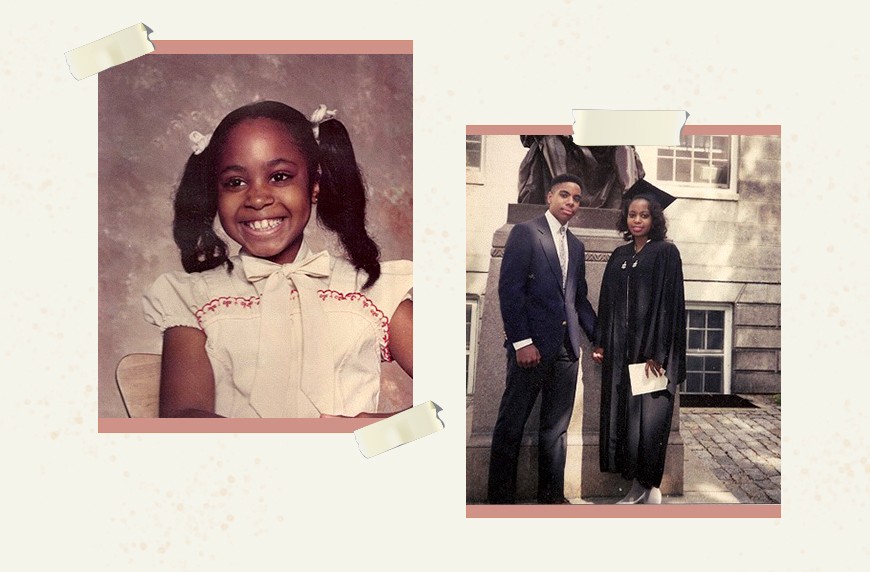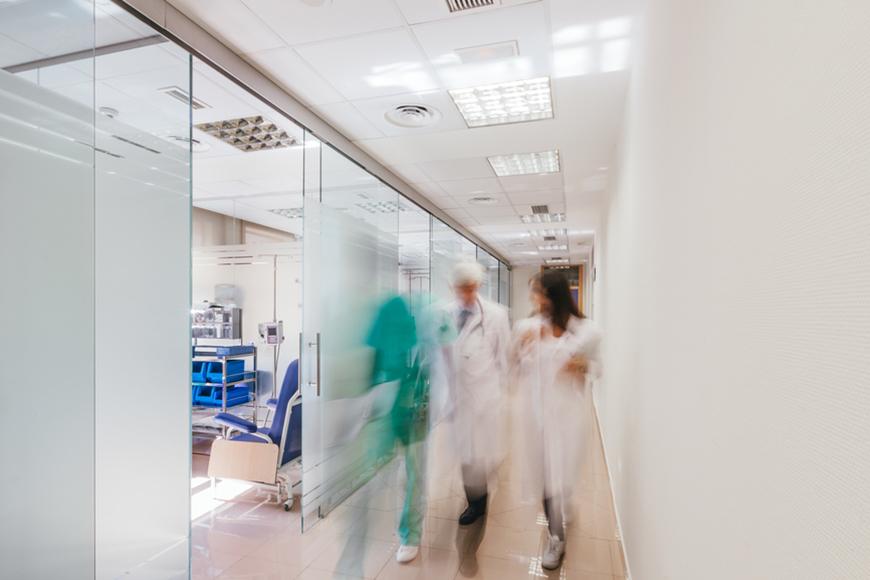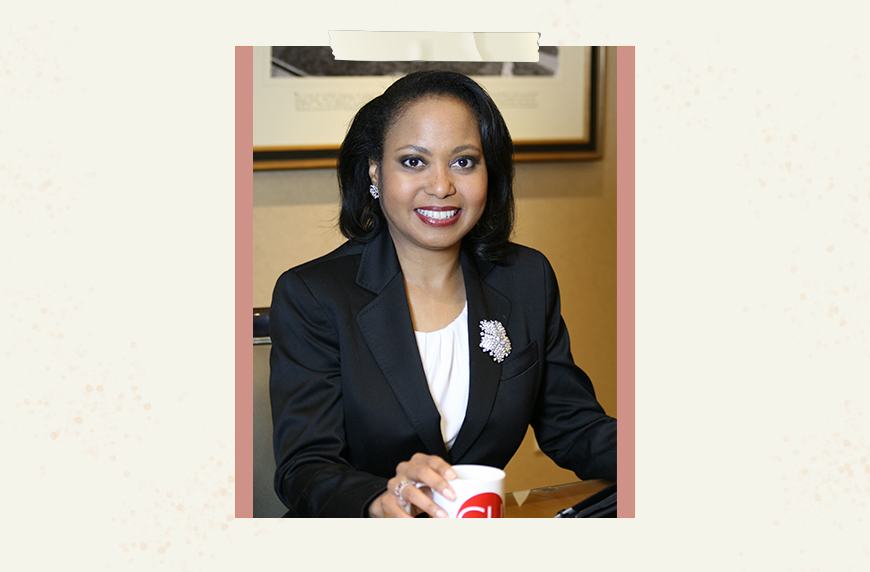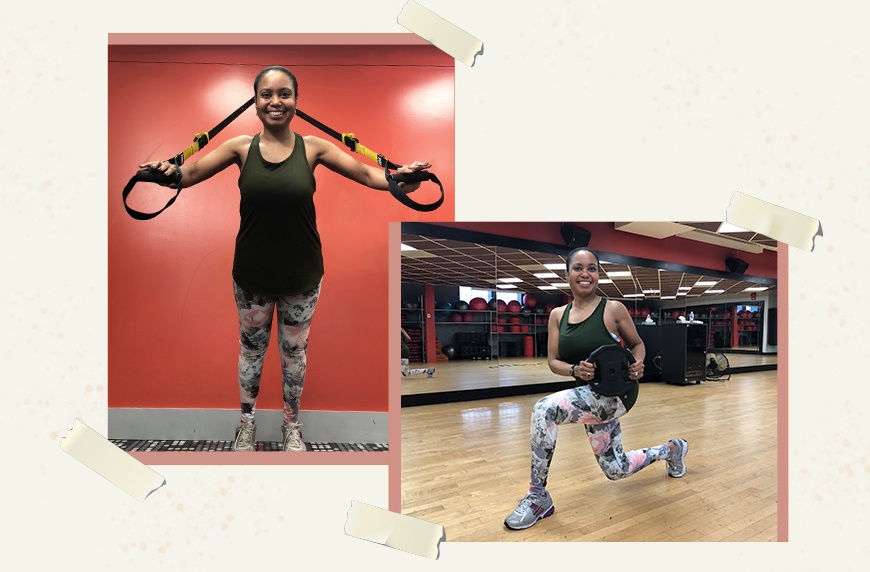This Is What It’s Like to Live With a Rare Autoimmune Disease
Imagine trying to get through your college finals and finish writing your thesis, all while being unable to get out of bed. It's the reality Global Liver Institute founder Donna Cryer faced when her inflammatory bowel disease got so bad that she needed her colon removed—and a liver transplant.
Here, in her own words, Cryer shares what it looks like to live with a life-threatening disease while still maintaining a full life. Her story is one of resilience, strength, and self-care.
Keep reading for a first-hand account of what's like to live with an autoimmune disorder.

How it started
I was first diagnosed with inflammatory bowel disease when I was 13 and in the 8th grade. So in addition to the typical teen dramas of wondering if my crush liked me back and navigating tricky friendship problems, I also had to figure out how to manage a lot of pretty unpleasant trips to the bathroom. While there are medications available to manage symptoms of IBD, there's no cure. Still, I didn't let the disease deter me from my ultimate goal: getting into Harvard.
In the fall of 1988, I began my first semester of college. When I met my roommates for the first time, I was faced with a choice: Did I tell them about my IBD or attempt to be "normal" and try and hide it? I opted for openness—a good way to ask for the bed closest to the bathroom—and it ended up strengthening my friendships so much. As my disease worsened—which, unfortunately, is not uncommon with IBD—they truly became my support system. It's not easy to ask for help, but when you do, you're rewarded by seeing people for who they truly are.
"Being sick didn't mean I didn't want to hear about my friends' breakups and fears about not getting into grad school."
Throughout my first three years of college, inflammation spread down my digestive tract, eventually affecting my liver. Senior year was when I was at my sickest—I literally couldn't get out of bed to go to class because I was so weak. What was most frustrating was the fact that the doctors couldn't pinpoint exactly what was wrong with me. They could tell I was getting weaker, but they couldn't figure out why exactly.

{{post.sponsorText}}
Even though I couldn't make it to class—or do much of anything—I still hung out with my friends as much as I could. Being sick didn't mean I didn't want to hear about my friends' breakups and fears about not getting into grad school—I absolutely did! And they were there for me, too, listening to me talk about how frustrating it was not to know what was going on with my body and wondering if my thesis title was too heady.
I stayed focused on my coursework, too. I was determined to do well and get accepted to Georgetown Law School. With great difficulty, I made it to all my exams and finished all my work, including writing six papers about Asian economics in less than 48 hours. And I got accepted to Georgetown Law.

Going from bad to worse
After graduating [from Harvard], I pursued finding a diagnosis with even more intensity than before—it became my main focus. Finally, I was diagnosed with primary sclerosing cholangitis (PSC), a specific type of liver disease. The liver plays a really crucial role in metabolizing fat soluble vitamins such as A, D, E, and K. So what was happening was that when I was eating, the vitamins weren't being absorbed properly, and it was causing me to lose my ability to walk. My muscles just weren't able to work well enough.
It was a relief to have a diagnosis, but it also meant some pretty sobering news: I needed a liver transplant. I also needed to get my colon removed, a major operation. My IBD was turning cancerous and there really was no other option. After my first year of law school—not going didn't even really occur to me—I had my colon surgery. The operation put a lot of stress on my body—which was already in bad shape since I needed a new liver—so I stayed in the hospital the whole summer.
"I wanted to show the doctors—who had really only seen me at my worst, 80 pounds and bedridden—that I was a person with friends, family, and big dreams for my life."
During that time, my room was always busy with visitors. One of the medical school students at the hospital where I was, Johns Hopkins, issued a call to Harvard alums to rally to my bedside and many came by to hang out with me. I got to know the doctors, nurses, and interns really well, even passing along intel about the cute doctors to nosy nurses who were too shy to ask. Hey, as a patient you can get away with stuff. Because I was in law school, I offered my legal services to anyone who needed them for practice.
I also made a bulletin board full of photos of myself with my friends and doing the things I enjoyed. It was partially to motivate myself, but I also wanted to show the doctors—who had really only seen me at my worst, 80 pounds and bedridden—that I wasn't just a bed by the window. I was a person with friends, family, and big dreams for my life.

Getting a new liver
As the end of summer drew near, I was still on the transplant list and I was running out of time. The doctor told my parents and me that I only had seven days to live. I refused to believe it. I was in complete denial. I have always been a person of faith. I've always felt God was with me and had a plan for my life. So I just kept assuming everything would turn out well.
I remember one day, my mom came by with my mail. She told me I had gotten accepted to a prestigious law journal. "What should I tell them?" she asked me. "Tell them yes!" I told her. It wasn't too long after that when the doctors found me a liver.
"The doctor told my parents and me that I only had seven days to live."
The recovery process for the liver transplant was amazing. My body started responding right away and I was out of the hospital a week later. By early December, I was ready to go back to school. It's pretty miraculous that you can be at death's door and then so shortly after back to living life so fully. I feel extremely fortunate, but the sad truth is that there are nearly 14,000 people on the transplant list today and only about 8,000 liver transplants are done each year. Seven people die every day waiting for a liver.
I was so excited to be doing well that I decided to throw a big party for my birthday. My roommates and I threw epic parties, and actually, there's one Halloween party people still talk about to this day. For my birthday, I had this idea to do a Caribbean-themed party. We had a steel drum band and invited all our neighbors, friends from school, and even doctors and nurses from the hospital. It really turned into quite the party!

What recovery looks like
While the liver transplant saved my life, it certainly wasn't my last surgery. I've had numerous abdominal surgeries and also both of my knees replaced, due to some of the medications I was on being hard on my knee cartilage.
My workouts evolve based on where I am in my recovery. After a surgery, I'll start with slow-moving martial arts, just to get some movement back. Then I'll move to barre or Pilates to work those small muscles. And then I'll move into dancing or other cardio-based workouts. I appreciate every workout I do. When I do a crunch, I marvel that my abs can do them after so many surgeries. When I'm on the rowing machine, I think about how everything in my body is working on a cellular level and it just amazes me. My favorite workouts now are Low Intensity Interval Training, doing lunges with kettlebells or weights.
Many of my doctors ask me how I'm able to recover so fast after my surgeries and how I'm doing so well now. I think a lot of it comes down to mindset. I want to do everything I can to create the best environment possible for my treatments to work. It's like planting a seed in the most fertile soil. I really try to maximize every moment to be a little bit stronger and more resilient every day.
Here's how to make your own vision board, similar to what Donna Cryer made herself. Plus, what happens when a healthy woman gets breast cancer.
Loading More Posts...